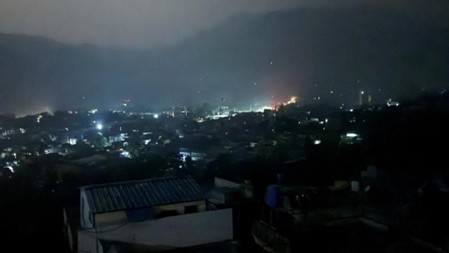Following a deadly militant attack on Indian tourists in Pahalgam, India-Administered Kashmir las month, India blamed Pakistan. New Delhi claims it has “evidence pointing towards the clear involvement of Pakistan-based militants, external” in the attack. Islamabad has denied any link. India in retaliation launched missile strikes on nine sites in Pakistan and Pakistan-administered Kashmir. The force of the attacks’ huge explosions jolted residents awake from their sleep. Analysts have been calling for a major diplomatic push to stop the conflict from escalating.
This is the moment for some well-timed mediation. With India having struck and Pakistan warning of a counter-strike, escalation risks are higher now than they’ve been at any time going back quite a few years. Based on the nature of these initial actions, the chance of further hostilities is quite likely. The international community appears to be in agreement that the attack in Pahalgam last month should be strongly condemned, but that de-escalation is essential. No-one wants a war with the world already on fire, and especially one between two nuclear rivals. This is the time for states with good relations with both India and Pakistan – the US but also the Arab Gulf states – to work the phones and urge the two to look for off ramps before nuclear escalation risks set in.
A war between India and Pakistan when escalated would be compared to opening a Pandora’s box. Chaos and carnage would be unleashed between the nuclear armed powers. The rest of the world be it the powers of the day in Washington, London, Paris, the Islamic World or the United Nations in New York will not want to see South East Asia become a nuclear waste land of radiation should Pakistan and India go to war. The international community such as the Administration of US President Donald Trump need to exert pressure on Indian Prime Minister Narendra Modi and Pakistani Prime Minister Shehbaz Sharif to consent to a ceasefire. Both Pakistan and India are members of the Commonwealth of Nations so even British Prime Minister Keir Starmer should exercise the influence of his government to bring peace to the region.
India is the second largest major economy in the developing world (more or less) but it will not do to have their coffers drained in a war that could drag out with Pakistan.
Talking exclusively to DNA, Major General (Retired) Harsh Kakkar warned it in the most unequivocal term that Pakistan is most likely to retaliate and hit back. He said that Islamabad may send its fighter jets, like they did in 2019 in the aftermath of the Balakot attack. They also have the option of firing short and medium-range missiles or using drones. Explaining the reasons behind the possible response, Major General Kakkar said that the Pakistan Army is desperate to prove itself when the country is in doldrums. He said that the Pakistan Army has already started blowing the Indian attack out of proportion and waged a propaganda war against New Delhi. He said that Islamabad has started claiming that three to five Indian aircraft have been shot down. The fact remains that all planes of the Indian Air Force have returned to their bases after successfully hitting their targets in Pakistan.
The risk of war in the region is high. Not even China to the north which is under heavy trade sanctions from the US will want to see a full-scale war between two close allies. Beijing will also seek to mediate between the two nations. If Islamabad chooses to retaliate, even with a legitimate reason other than supporting militancy then it should be weary of using nuclear weapons. New Delhi too should be weary of escalating tensions. The Asian nations, and the rest of the world with a vested interest in the south east Asian region need to come together to call for an immediate ceasefire. This armistice should be followed by peace talks concerning how to settle the Kashmir dispute.
A just solution to the conflict over the disputed territory will not be easy to find. It would have to be binding and acceptable not just to India and Pakistan but the Kashmiri people themselves. The vast majority of the territory’s population particularly in the Indian controlled part of Kashmir now want independence. This could work with Kashmir as a buffer state between India and Pakistan. Going forward it is a feasible solution in the present to the current complications.
Article written by:
Yacoob Cassim
Journalist at Radio Al Ansaar






